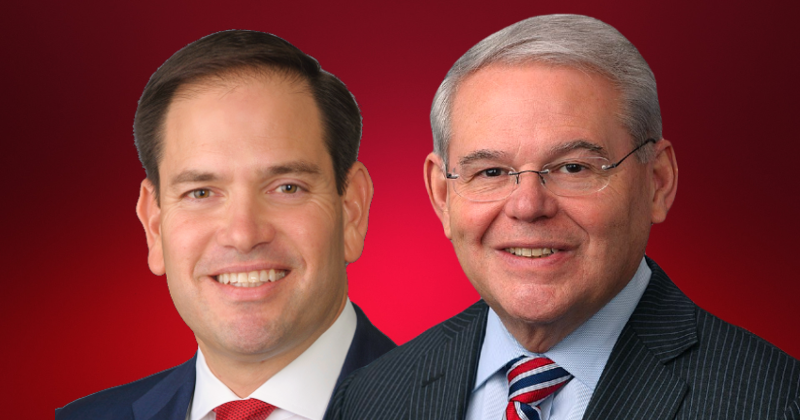U.S. Sens. Marco Rubio, R-Fla., and Bob Menendez, D-NJ, are working together on the “Firefighter Cancer Registry Reauthorization Act.”
The bill “would reauthorize the national registry for firefighters diagnosed with cancer for an additional five years” and Rubio’s office offered some of the reasons why he was championing the proposal.
“Firefighters are exposed to a range of harmful toxins, and research has indicated a strong connection between firefighting and an increased risk for several major cancers, such as testicular, stomach, multiple myeloma, and brain cancers. In 2018, Senator Rubio joined his colleagues in introducing and passing the Firefighter Cancer Registry Act, which created a national cancer registry for firefighters diagnosed with the deadly disease. Since then, the National Institute for Occupational Safety and Health has enrolled firefighters into the registry and collected critical data,” Rubio’s office noted.
Menendez introduced the bill last week with Rubio as one of the six cosponsors.
“Firefighters always answer the call and put their lives on the line to protect us from dangerous situations. The nature of their work makes them susceptible to multiple health complications, including cancer. I am proud to support this bill that aims to protect these brave first responders from cancer, and I encourage my colleagues in Congress to swiftly pass it,” said Rubio.
“I am pleased to be leading this bipartisan effort to reauthorize the firefight cancer registry as we work to promote the health and well-being of our first responders all across the nation. Reauthorizing this law would be a huge win for our firefighters, who put their lives on the line every day to help protect us and our loved ones. Firefighters not only encounter smoke and flames when they run into burning buildings, but also dangerous fumes, toxins, and known carcinogens released during a fire that pose additional health risks. The ultimate goal is to prevent cancer in firefighters by developing better ways of protecting, and reauthorizing this law will help us better comprehend their cancer risks,’ said Menendez.
According to backers, the registry “stores and consolidates epidemiological information submitted by health care professionals related to cancer incidence among firefighters; makes de-identified data available to public health researchers to provide them with robust and comprehensive datasets to expand groundbreaking research; improves our understanding of cancer incidence and could potentially lead to the development of more sophisticated safety protocols and safeguards as more data is collected; and to ensure the effectiveness of the registry, its administrators are required to consult regularly with epidemiologists, public health experts, clinicians, and firefighters.”
The bill was sent to the U.S. Senate Health, Education, Labor, and Pensions Committee. So far, there is no companion measure over in the U.S. House.




















